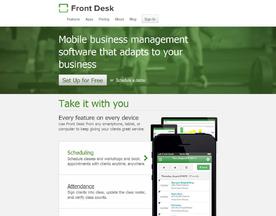How to maximize your company’s potential as a small business consultant? Empower clients with tailored strategies, optimize processes, leverage technology, foster innovation, and drive growth through actionable insights.
Small businesses are the backbone of many economies around the world. However, running a small business can be challenging, especially for new entrepreneurs. Small business consultants offer guidance and support to these entrepreneurs to help them navigate the complexities of running a business.

Small business consultants provide a range of services, including market research, financial analysis, and business strategy development. They help entrepreneurs identify areas where they can improve their business operations and develop plans to achieve their goals. Consultants also offer guidance on legal and ethical issues, which can be particularly challenging for new business owners.
For entrepreneurs who are just starting out, the idea of hiring a consultant may seem daunting. However, working with a consultant can be a smart investment that pays off in the long run. By providing expert guidance and support, small business consultants can help entrepreneurs avoid common pitfalls and achieve success.
Key Takeaways
- Small business consultants offer guidance and support to entrepreneurs to help them navigate the complexities of running a business.
- Consultants provide a range of services, including market research, financial analysis, and business strategy development.
- Working with a consultant can be a smart investment that pays off in the long run.
Understanding Small Business Consulting
Defining the Role of a Small Business Consultant
Small business consulting is a service provided by experienced professionals who specialize in advising and guiding small business owners. The small business consultant works with the business owner to help identify areas where the business can improve and grow. They offer advice on how to improve operations, increase revenue, and reduce expenses.
Small business consultants can provide a range of services, including business planning, financial analysis, marketing strategy, and human resources management. They can also help with specific projects, such as developing a new product or service, or expanding into new markets.
The Importance of Small Business Consulting
Small business consulting is important because it helps small business owners make informed decisions about their businesses. By working with a consultant, business owners can gain a better understanding of their operations and identify areas for improvement. This can help them make better decisions about how to allocate resources and invest in their businesses.
Small business consulting can also help business owners navigate complex regulations and legal issues. Consultants can provide guidance on compliance with laws and regulations, as well as help with tax planning and preparation.
Overall, small business consulting can be a valuable resource for small business owners who want to grow their businesses and improve their operations. By working with a consultant, business owners can gain the knowledge and expertise they need to succeed.
For more information on small business consulting, visit Entrepreneur, a leading resource on small business management.
Getting Started as a Consultant

Becoming a small business consultant can be a rewarding and lucrative career choice. However, it can be challenging to know where to start. This section will provide a brief overview of how to become a small business consultant, essential certifications and licenses, and building your consulting business.
How to Become a Small Business Consultant
To become a small business consultant, one should have a solid understanding of business principles and practices. Many consultants have a background in business, finance, or entrepreneurship. However, it is not a requirement.
One way to gain the necessary knowledge and skills is to take business courses or earn a degree in business administration. Another option is to gain experience by working in a business-related field, such as accounting or marketing.
Networking is also essential for becoming a small business consultant. Attending industry events and joining professional organizations can help establish connections and build a reputation in the field.
Essential Certifications and Licenses
While not required, obtaining certifications and licenses can enhance credibility and increase job opportunities. Some of the most popular certifications for small business consultants include:
- Certified Management Consultant (CMC)
- Certified Business Consultant (CBC)
- Certified Turnaround Professional (CTP)
In addition to certifications, some states require small business consultants to obtain a license. It is essential to research the licensing requirements in your state before starting a consulting business.
Building Your Consulting Business
Starting a small business consulting firm requires careful planning and execution. It is essential to determine your niche, target market, and pricing strategy. Developing a business plan can help clarify these details and provide a roadmap for success.
Marketing is also critical for building a consulting business. Creating a website, developing a social media presence, and attending networking events can all help attract clients.
One external resource that can provide helpful information for starting a consulting business is the Small Business Administration (SBA). The SBA offers a variety of resources and tools for entrepreneurs, including business planning guides and financing options.
In conclusion, becoming a small business consultant requires a combination of knowledge, experience, and networking. Obtaining certifications and licenses can enhance credibility and increase job opportunities. Building a consulting business requires careful planning, execution, and marketing. By following these steps, aspiring consultants can establish a successful and rewarding career.
Core Consulting Services
Small business consultants offer a range of services to help businesses improve their performance and achieve their goals. Here are some of the core consulting services that a small business consultant may provide:
Strategic Business Planning
Strategic planning is an essential process that helps businesses set goals, develop strategies, and allocate resources to achieve their objectives. Small business consultants can help businesses create a comprehensive business plan that outlines their vision, mission, goals, and strategies. They can also provide guidance on how to implement the plan and monitor progress towards achieving the goals.
Marketing and Sales Support
Marketing and sales are critical functions for any business. Small business consultants can help businesses develop a marketing plan that identifies their target market, defines their value proposition, and outlines the tactics they will use to reach their customers. They can also provide sales training and support to help businesses improve their sales performance.
Financial Management and Planning
Financial planning and management are essential for the success of any business. Small business consultants can help businesses develop a financial plan that includes budgeting, forecasting, and cash flow management. They can also provide guidance on how to improve profitability, reduce costs, and manage risk.
Human Resources and Staffing Solutions
Human resources and staffing are critical functions for any business. Small business consultants can help businesses develop an HR strategy that includes recruitment, onboarding, training, and performance management. They can also provide guidance on how to develop a culture of engagement and retention.
Technology and IT Consulting
Technology is an essential component of modern business. Small business consultants can help businesses develop an IT strategy that includes hardware, software, and infrastructure. They can also provide guidance on how to leverage technology to improve efficiency, productivity, and customer experience.
Small business consultants offer a range of services that can help businesses improve their performance and achieve their goals. By working with a consultant, businesses can gain access to expertise, resources, and best practices that can help them succeed. For more information on small business consulting services, check out this resource from Inc. Magazine.
Effective Business Strategies

Small businesses often struggle to compete against larger, more established companies. However, with the right business strategies, small businesses can not only survive but thrive. In this section, we will discuss some effective business strategies that small business consultants can recommend to their clients.
Market Analysis and Research
Before any business strategy can be developed, it is important to conduct thorough market analysis and research. This involves identifying the target market, understanding their needs and preferences, and analyzing the competition. By doing so, businesses can gain valuable insights into their industry and make informed decisions about their products, services, and marketing efforts.
Small business consultants can help their clients conduct market research by using various tools and techniques such as surveys, focus groups, and online analytics. By gathering and analyzing data, businesses can identify opportunities for growth and develop strategies to capitalize on them.
Developing a Strong Business Model
A strong business model is essential for any business, regardless of its size. A business model defines how a company creates, delivers, and captures value. It outlines the key activities, resources, and partnerships required to operate the business and generate revenue.
Small business consultants can help their clients develop a strong business model by analyzing their current operations and identifying areas for improvement. They can also help businesses identify new revenue streams and develop strategies to increase profitability.
Setting and Achieving Business Goals
Setting and achieving business goals is crucial for the success of any small business. Goals provide direction and focus, and help businesses measure progress and success. However, setting realistic and achievable goals can be challenging, especially for small businesses with limited resources.
Small business consultants can help their clients set and achieve business goals by developing a clear and actionable plan. This involves identifying specific goals, breaking them down into smaller, manageable tasks, and setting deadlines for completion. Consultants can also provide guidance and support throughout the goal-setting process, helping businesses stay on track and achieve their objectives.
For more information on effective business strategies for small businesses, check out this resource.
Marketing Your Consulting Business
As a small business consultant, marketing your services is essential to attract potential clients and grow your business. Creating a marketing plan that outlines your target audience, messaging, and channels is the first step in developing a successful marketing strategy.
Creating a Marketing Plan
A marketing plan should include a clear understanding of your target audience, their pain points, and how your consulting services can help solve their problems. It should also outline your unique selling proposition and messaging that sets you apart from your competitors. By identifying the right channels to reach your target audience, you can create a plan that maximizes your marketing efforts.
Leveraging Digital Marketing Channels
Digital marketing channels such as social media, SEO, email marketing, and content marketing are effective ways to reach potential clients. By creating a strong online presence, you can increase your visibility and credibility. A professional website that showcases your services and expertise is essential for any small business consultant. It should be easy to navigate, visually appealing, and optimized for search engines.
Building a Professional Website
Building a professional website is a crucial aspect of marketing your consulting business. It should be designed to reflect your brand and highlight your expertise. The website should also include a clear call-to-action that encourages potential clients to contact you. By leveraging SEO best practices, you can improve your website’s visibility on search engines and attract more traffic to your site.
Networking and Referrals
Networking and referrals are powerful ways to attract new clients. By attending industry events, joining professional organizations, and building relationships with other professionals, you can expand your network and increase your visibility. Encouraging satisfied clients to refer you to their network is also an effective way to grow your business.
By implementing these marketing strategies, small business consultants can attract potential clients, build their brand, and grow their business. For more information on creating a successful marketing plan, visit HubSpot’s Marketing Plan Template.
Client Relationship Management

Successful small business consultants understand the importance of building and maintaining strong relationships with their clients. Effective client relationship management involves acquiring and retaining clients, delivering value to clients, and continuously improving based on client feedback.
Acquiring and Retaining Clients
Small business consultants must be experts in sales and marketing to attract new clients and retain existing ones. They must have a deep understanding of their target audience and develop a compelling value proposition that resonates with potential clients. Consultants can leverage various marketing channels, including social media, email marketing, and search engine optimization, to reach a wider audience and generate leads.
Once a consultant acquires a new client, they must focus on building a strong relationship to ensure the client stays satisfied and loyal. This involves setting clear expectations, communicating regularly, and delivering high-quality services that exceed the client’s expectations. Consultants must also be proactive in identifying opportunities to upsell or cross-sell additional services to existing clients.
Delivering Value to Clients
Small business consultants must have the expertise to deliver tangible results and drive success for their clients. They must have a deep understanding of their client’s business, industry, and challenges to develop customized solutions that address their specific needs. Consultants must be able to clearly articulate the value they bring and the impact they can make on the client’s business.
To deliver value to clients, consultants must continuously improve their skills and stay up-to-date with the latest industry trends and best practices. This involves investing in ongoing education and training to expand their expertise and deliver innovative solutions to their clients.
Client Feedback and Improvement
Small business consultants must actively seek feedback from their clients to identify areas for improvement and ensure they are meeting their needs. They must have a structured process for collecting feedback, such as surveys or regular check-ins, and use this feedback to make meaningful improvements to their services.
Consultants must be open to constructive criticism and willing to make changes based on client feedback. They must also be transparent with their clients about their areas of expertise and limitations and work collaboratively to develop effective solutions.
In conclusion, effective client relationship management is critical for small business consultants to drive success for their clients and grow their revenue. By acquiring and retaining clients, delivering value, and continuously improving based on feedback, consultants can build strong, long-lasting relationships that drive success for both parties. For more information on client relationship management, check out this link.
Operational Excellence in Consulting

Small business consultants play a vital role in helping companies achieve operational excellence. By providing expert guidance and support, consultants can help businesses streamline their operations, reduce costs, and increase efficiency. In this section, we will explore some of the key areas where small business consultants can help companies achieve operational excellence.
Managing Projects and Resources Efficiently
One of the primary areas where small business consultants can help companies achieve operational excellence is in managing projects and resources efficiently. Consultants can provide guidance on project management best practices, including creating project plans, defining project milestones, and managing project risks. They can also help businesses optimize their resource allocation, ensuring that resources are used effectively and efficiently.
Financial Health and Cash Flow
Small business consultants can also help companies achieve operational excellence by ensuring their financial health and cash flow. Consultants can provide guidance on financial management best practices, including creating budgets, managing cash flow, and optimizing financial processes. They can also help businesses identify opportunities for cost savings and revenue growth, ensuring long-term financial stability.
Legal Compliance and Avoiding Lawsuits
Small business consultants can also help companies achieve operational excellence by ensuring legal compliance and avoiding lawsuits. Consultants can provide guidance on legal and regulatory compliance best practices, including creating compliance policies and procedures, monitoring regulatory changes, and managing legal risks. They can also help businesses avoid lawsuits by providing guidance on risk management and dispute resolution.
In conclusion, small business consultants play a critical role in helping companies achieve operational excellence. By providing expert guidance and support in key areas such as project management, financial health, and legal compliance, consultants can help businesses optimize their operations, reduce costs, and increase efficiency. For more information on small business consulting and how it can benefit your business, check out this link.
Growth and Development

Scaling Your Consulting Business
As a small business consultant, scaling your consulting business is a crucial aspect of growth and development. It involves expanding your business operations to reach a wider audience and increase revenue. To achieve this, you need to have a solid business development plan that outlines your goals and strategies for growth.
One strategy for scaling your consulting business is to leverage technology. This can include using digital marketing techniques to reach a wider audience, using project management tools to streamline your workflow, and using data analytics to make informed business decisions.
Another strategy is to build a strong team. This involves hiring skilled professionals who can help you deliver high-quality services to your clients. It also involves investing in training and development programs to help your team stay up-to-date with the latest industry trends and best practices.
Continuous Learning and Training
Continuous learning and training are essential for any small business consultant who wants to stay ahead of the competition. It involves investing in education and professional development programs to improve your skills and knowledge.
Some ways to achieve continuous learning and training include attending industry conferences, taking online courses, and participating in professional development programs. These programs can help you stay up-to-date with the latest industry trends and best practices, and they can also help you build a strong network of industry professionals.
Exploring Niche Markets
Exploring niche markets is another strategy for growth and development as a small business consultant. It involves identifying specific areas of expertise and targeting clients who have specific needs in those areas.
For example, if you have expertise in social media marketing, you can target clients who need help with their social media strategy. By focusing on a specific niche, you can differentiate yourself from other consultants and build a reputation as an expert in that area.
To explore niche markets, you need to conduct market research to identify areas where there is high demand for your services. You also need to develop a marketing strategy that targets clients in those niche markets.
Overall, growth and development as a small business consultant requires a combination of business development, training and education, and exploring niche markets. By implementing these strategies, you can position yourself for long-term success in the consulting business.
Here is an article on Entrepreneur.com that provides more information on how to scale your consulting business.
Financial Aspects of Consulting

Small business consultants often assist clients with financial matters, including pricing, budgeting, forecasting, taxes, accounting, payroll, and bookkeeping. A financial consultant can help a small business owner to understand the financial aspects of their business and make informed decisions to improve their bottom line.
Pricing Your Services
Pricing is an important aspect of consulting, and small business consultants must set prices that are fair and competitive. Consultants must consider factors such as their level of expertise, the complexity of the work, and the market demand for their services. It is important for consultants to communicate their pricing structure clearly to clients and to be transparent about any additional fees or charges.
Consultants should also consider offering different pricing packages to meet the needs of different clients. For example, some clients may only need a one-time consultation, while others may require ongoing support.
Budgeting and Forecasting
Budgeting and forecasting are essential for small business success. Consultants can assist clients with developing a budget and creating a financial forecast to help them plan for the future. This can include analyzing past financial data, identifying trends, and forecasting future revenue and expenses.
By creating a budget and forecast, small business owners can make informed decisions about how to allocate resources and plan for growth. Consultants can also provide guidance on how to adjust the budget and forecast as the business evolves.
Understanding Taxes and Accounting
Small business owners must understand the tax implications of their business operations. A financial consultant can help clients to navigate the complex world of taxes and accounting and ensure that they are in compliance with all applicable laws and regulations.
Consultants can assist with tax planning, preparation, and filing, as well as provide guidance on record-keeping and financial reporting. Small business owners can benefit from the expertise of a financial consultant to avoid costly mistakes and maximize their tax savings.
Overall, the financial aspects of consulting are crucial for small business success. By working with a knowledgeable and experienced consultant, small business owners can gain valuable insights and make informed decisions to improve their financial performance.
For more information on financial consulting for small businesses, check out this link from Entrepreneur.com.
Technology and Software Tools

Small business consultants have a wide range of technology and software tools at their disposal to help their clients succeed. Here are some of the most important tools that consultants can use to help small businesses thrive.
Utilizing Consulting Software
Consulting software can help small business consultants manage their projects, track their time, and collaborate with their clients. This software can also help consultants keep track of their finances and manage their contacts. Some popular consulting software options include Trello, Asana, and Basecamp.
Leveraging Data and Analytics
Data and analytics are essential for small businesses that want to stay competitive in today’s market. Small business consultants can help their clients gather, analyze, and use data to make informed decisions. Consultants can also help small businesses set up analytics tools like Google Analytics to track their website traffic and other important metrics.
Website and Digital Presence
A strong digital presence is essential for small businesses that want to reach new customers and grow their brand. Small business consultants can help their clients design and develop a website that showcases their products or services. They can also help small businesses develop a strong social media presence and create digital marketing campaigns that drive traffic to their website.
Overall, technology and software tools can help small business consultants provide better service to their clients and help those clients achieve their goals. By staying up-to-date with the latest tools and trends, small business consultants can stay ahead of the curve and provide their clients with the best possible service.
For more information on technology and software tools for small business consultants, check out this article from Forbes.
Challenges and Problem Solving

Small business consultants face various challenges while working with their clients. These challenges can range from communication barriers to resistance to change. In this section, we will discuss some common consulting challenges and effective problem-solving techniques that can help overcome them.
Addressing Common Consulting Challenges
One of the most common challenges that small business consultants face is communication barriers. It can be difficult to communicate with clients who have different communication styles or who speak a different language. To overcome this challenge, consultants should focus on active listening and ask clarifying questions to ensure that they understand their clients’ needs and concerns.
Another challenge that consultants face is resistance to change. Clients may be hesitant to implement new strategies or processes, even if they are beneficial in the long run. To address this challenge, consultants should focus on building trust with their clients and providing evidence-based solutions to support their recommendations. It is also important to involve clients in the decision-making process and provide them with the resources and support they need to implement changes successfully.
Effective Problem-Solving Techniques
Effective problem-solving is a crucial skill for small business consultants. One technique that can be helpful is root cause analysis. This involves identifying the underlying causes of a problem rather than just addressing the symptoms. By addressing the root cause, consultants can develop more effective solutions that will have a lasting impact.
Another technique that can be helpful is brainstorming. This involves generating a large number of ideas and then evaluating them to determine the best course of action. Brainstorming can be done individually or in a group setting and can be a useful way to generate creative solutions to complex problems.
In conclusion, small business consultants face various challenges while working with their clients. However, by focusing on effective communication and problem-solving techniques, they can overcome these challenges and help their clients achieve their goals. For more information on small business consulting, check out this resource.
Industry Insights and Trends

Small business consultants need to stay updated with industry developments and adapt to changing market demands to provide the best possible service to their clients. Here are some insights and trends that can help small business consultants stay ahead of the game.
Staying Updated with Industry Developments
To provide the best possible service to their clients, small business consultants need to stay updated with industry developments. This can be done by attending industry conferences and events, reading industry publications, and networking with other professionals in the field. By staying updated with industry developments, small business consultants can provide their clients with the most up-to-date knowledge and expertise.
One great resource for staying updated with industry developments is the Small Business Administration (SBA). The SBA provides a wealth of information on small business trends, including market research, competitive analysis, and industry insights. Small business consultants can also benefit from the SBA’s training and education programs, which provide valuable knowledge and skills for working with small businesses.
Adapting to Changing Market Demands
Small business consultants must also be able to adapt to changing market demands. This means understanding the needs and wants of their clients, as well as the broader market trends that may impact their business. By staying ahead of market trends, small business consultants can help their clients stay competitive and achieve their goals.
One way to stay ahead of market trends is to conduct market research. This can include analyzing industry reports, surveying customers, and tracking competitor activity. By gathering this information, small business consultants can identify emerging trends and opportunities, and help their clients capitalize on them.
Small business consultants can also help their clients gain a competitive advantage by providing personalized service and tailored solutions. By understanding their clients’ unique needs and challenges, small business consultants can develop customized strategies that help their clients achieve their goals and stand out in the marketplace.
For more information on small business consulting and industry trends, check out this resource from Inc. magazine.
Building a Personal Brand

Small business consultants rely heavily on their personal brand to attract clients and establish credibility in their field. Building a strong personal brand can help consultants differentiate themselves from their competitors and increase their visibility in the marketplace. In this section, we will explore some key strategies for building a personal brand as a small business consultant.
Personal Branding for Consultants
Personal branding is the process of creating a unique identity that represents you and your business. It involves defining your values, strengths, and expertise, and communicating them in a way that resonates with your target audience. As a small business consultant, your personal brand should reflect your knowledge and experience in your field, as well as your ability to solve problems and deliver results for your clients.
To build a strong personal brand, it is important to focus on your strengths and areas of expertise. This will help you establish yourself as an authority in your field and attract clients who are looking for your specific skills. You can also differentiate yourself by developing a unique value proposition that sets you apart from your competitors.
Social Media and Influencer Marketing
Social media and influencer marketing can be powerful tools for building a personal brand as a small business consultant. By creating and sharing valuable content on social media platforms, you can establish yourself as an expert in your field and build a following of potential clients.
Influencer marketing involves partnering with other experts or thought leaders in your field to reach a wider audience. This can help you build credibility and establish yourself as a trusted authority in your industry. By collaborating with influencers on social media, you can reach new audiences and build relationships with potential clients.
One effective way to build your personal brand through social media and influencer marketing is to participate in online communities and forums related to your industry. By sharing your expertise and engaging with others in your field, you can build relationships and establish yourself as a thought leader in your industry.
Overall, building a strong personal brand is essential for small business consultants who want to stand out in their field and attract clients. By focusing on your strengths and leveraging social media and influencer marketing, you can establish yourself as an authority in your industry and build a loyal following of clients and fans. For more information on personal branding for small business consultants, check out this helpful guide from Entrepreneur.
Advanced Consulting Techniques

Small business consultants are experts in helping businesses grow and succeed. They offer a range of services, from strategic planning to sales and marketing tactics. Advanced consulting techniques can help businesses achieve their goals and stay ahead of the competition.
Mastering Sales and Marketing Tactics
Sales and marketing are crucial to the success of any business. Small business consultants can help businesses develop effective sales and marketing strategies that will help them reach their target audience and increase their revenue. They can provide guidance on everything from creating a marketing plan to developing a sales pitch.
One of the most effective sales tactics is to focus on the benefits that a product or service can provide to the customer. Small business consultants can help businesses identify their unique selling points and communicate them effectively to potential customers. They can also provide guidance on how to use social media and other marketing techniques to reach a wider audience.
Strategic Planning and Execution
Strategic planning is essential for any business that wants to succeed in the long term. Small business consultants can help businesses develop a strategic plan that takes into account their goals, strengths, weaknesses, and competition. They can also provide guidance on how to execute the plan effectively and measure its success.
One of the key benefits of strategic planning is that it helps businesses stay focused on their goals and avoid getting sidetracked by distractions or short-term opportunities. Small business consultants can help businesses stay on track and make sure that they are always moving towards their goals.
In conclusion, small business consultants can provide a range of advanced consulting techniques that can help businesses grow and succeed. Whether it’s mastering sales and marketing tactics or developing a strategic plan, small business consultants can provide the guidance and expertise that businesses need to stay ahead of the competition. To learn more about advanced consulting techniques, check out this resource from Inc. magazine.
Legal and Ethical Considerations

Understanding Contracts and Agreements
Small business consultants often work with clients on a contractual basis, which means that they need to be familiar with contracts and agreements. Consultants should have a good understanding of contract law and should be able to draft and review contracts. They should also be able to negotiate the terms of contracts on behalf of their clients.
It is important for small business consultants to ensure that contracts and agreements are legally binding and enforceable. They should also ensure that contracts are fair and reasonable for all parties involved. Consultants should be familiar with the different types of contracts, such as employment contracts, sales contracts, and service contracts.
To ensure that they are providing the best possible service to their clients, small business consultants should stay up-to-date with changes in contract law. They should also be aware of any certifications or licenses that they need to have in order to legally provide consulting services.
Ethical Standards in Consulting
Small business consultants should adhere to ethical standards when providing consulting services. They should act in the best interests of their clients and avoid any conflicts of interest. Consultants should also maintain confidentiality and respect the privacy of their clients.
Consultants should be transparent about their fees and billing practices. They should also avoid making exaggerated or false claims about their services. Small business consultants should be honest and upfront with their clients about the potential benefits and risks of any recommendations or strategies that they propose.
It is important for small business consultants to comply with all applicable laws and regulations. They should also be familiar with industry standards and best practices. Consultants should be able to provide guidance to their clients on compliance issues, such as data privacy and security.
Small business consultants can refer to the Institute of Management Consultants USA (IMC USA) Code of Ethics for guidance on ethical standards in consulting. The IMC USA is a professional association for management consultants and provides resources and support for its members.
Resource Management

Small business consultants understand the importance of effective resource management. It involves managing resources such as time, money, and staff to achieve business goals. This section will provide insights on how small business consultants can help optimize resource management.
Effective Use of Time and Money
Small business consultants can help businesses optimize the use of time and money by analyzing their operations and identifying areas of inefficiency. They can recommend tools and software that can automate certain tasks and streamline processes, allowing businesses to save time and money. Consultants can also help businesses prioritize their tasks and allocate resources effectively to ensure that they are achieving their goals within the given timeline and budget.
One of the most effective ways to optimize the use of time and money is through outsourcing. Small business consultants can help businesses identify tasks that can be outsourced to third-party providers, allowing businesses to focus on their core competencies while reducing costs and increasing efficiency. For example, a consultant may recommend outsourcing tasks such as bookkeeping, customer service, or marketing to specialized service providers.
Optimizing Staff and Resource Allocation
Small business consultants can also help businesses optimize staff and resource allocation. They can analyze the business’s current staff and resource allocation and identify areas of improvement. Consultants can recommend strategies to better allocate resources and staff to ensure that the business is operating at maximum efficiency.
One of the most effective ways to optimize staff and resource allocation is through cross-training. Small business consultants can recommend cross-training programs that allow employees to learn new skills and take on new responsibilities. This can help businesses reduce costs and increase efficiency by reducing the need for specialized staff and increasing the flexibility of the workforce.
In conclusion, small business consultants play a crucial role in optimizing resource management. By analyzing a business’s operations and identifying areas of inefficiency, consultants can recommend strategies to optimize the use of time, money, and staff, allowing businesses to achieve their goals more efficiently. For more information on resource management, check out this link.
Client Success Stories

Case Studies and Testimonials
Small business owners often seek the help of a consultant to improve their business performance and achieve success. The success of a consultant is measured by the success of their clients, and many small business consultants have a track record of helping their clients achieve their goals.
One example of a successful small business consultant is John Smith, who helped a local restaurant increase their revenue by 30% in just six months. The restaurant owner, Jane Doe, was struggling to attract new customers and retain existing ones. John conducted a thorough analysis of the restaurant’s operations and identified several areas for improvement. He helped Jane implement a new marketing strategy, improve the quality of the food and service, and streamline the restaurant’s operations. Jane was thrilled with the results and provided a glowing testimonial for John’s services.
Another success story is that of Sarah Lee, who was struggling to grow her online retail business. She hired a consultant named David Johnson, who helped her increase her website traffic by 50% and double her sales within a year. David conducted a detailed analysis of Sarah’s website and identified several areas for improvement. He helped Sarah optimize her website for search engines, improve the user experience, and launch a successful email marketing campaign.
Measuring Client Success and Performance
Small business consultants often use various metrics to measure the success and performance of their clients. Some of the common metrics used include revenue growth, customer satisfaction, employee satisfaction, and profitability.
For example, John Smith measured the success of his client, Jane Doe’s restaurant, by tracking the increase in revenue and customer satisfaction. He also conducted surveys to measure employee satisfaction and identify areas for improvement.
Similarly, David Johnson measured the success of his client, Sarah Lee’s online retail business, by tracking the increase in website traffic, sales, and customer satisfaction. He also monitored the success of the email marketing campaign and made adjustments as needed.
Overall, client success stories and measuring client success and performance are crucial aspects of a small business consultant’s work. By helping their clients achieve their goals and measuring their success, consultants can build a strong reputation and attract new clients.
Here is a resource that provides more information on how to hire a small business consultant.
Networking and Community
Small business consultants understand the importance of networking and building relationships within their community. By doing so, they can expand their client base, gain valuable insights into industry trends, and build a reputation as a trusted advisor.
Building Professional Relationships
One of the key benefits of networking is the ability to build professional relationships. These relationships can take many forms, from casual acquaintances to close partnerships. Small business consultants can benefit from building relationships with other professionals in their field, such as accountants, lawyers, and marketing experts. By doing so, they can offer their clients a more comprehensive range of services and tap into the expertise of others.
Participating in Industry Events
Another way for small business consultants to build their network is by participating in industry events. These events can take many forms, from trade shows to conferences to local meetups. By attending these events, consultants can meet other professionals in their field, learn about new trends and technologies, and even find new clients.
One valuable resource for small business consultants looking to build their network is SCORE, a nonprofit organization that provides free business advice and mentoring services. SCORE offers a variety of resources for small business owners, including webinars, workshops, and one-on-one mentoring sessions. By connecting with SCORE and other organizations like it, small business consultants can expand their network and gain valuable insights into the world of entrepreneurship.
In summary, networking and community involvement are essential for small business consultants looking to build their reputation and expand their client base. By building professional relationships and participating in industry events, consultants can tap into a wealth of expertise and resources, ultimately benefiting their clients and their own business.
Frequently Asked Questions
What services do small business consultants typically offer?
Small business consultants offer a range of services to help small businesses improve their operations and achieve their goals. Some common services include business planning, financial management, marketing strategy, and human resources management. Consultants may also provide specialized services, such as technology consulting or legal advice.
How can a small business consultant help my company grow?
A small business consultant can help your company grow by identifying areas for improvement and developing strategies to address them. They can also provide guidance on how to increase profitability, improve customer satisfaction, and expand your customer base. By working with a consultant, you can gain valuable insights and expertise that can help you make better decisions and achieve your business goals.
What qualifications should I look for in a small business consultant?
When selecting a small business consultant, it’s important to look for someone with relevant experience and expertise. Look for consultants who have worked with businesses similar to yours and who have a track record of success. You may also want to consider their educational background, certifications, and professional affiliations.
How do I determine the right fee to pay for business consulting services?
The fee for business consulting services can vary depending on the consultant’s experience, the scope of the project, and other factors. It’s important to discuss fees upfront and to get a clear understanding of what services will be provided. You may want to compare fees from multiple consultants to ensure you’re getting a fair price.
What are the benefits of obtaining small business consultant certification?
Obtaining a small business consultant certification can demonstrate your expertise and credibility in the field. It can also help you stand out from other consultants and attract more clients. The Institute of Management Consultants USA offers a Certified Management Consultant (CMC) certification that is recognized globally.
How do small business consultants differ from larger organizational consulting firms?
Small business consultants typically work with smaller companies and focus on specific areas of expertise. They may offer more personalized services and have a deeper understanding of the unique challenges facing small businesses. Larger organizational consulting firms may offer a broader range of services and work with larger companies.
For more information on small business consulting, visit Entrepreneur.















